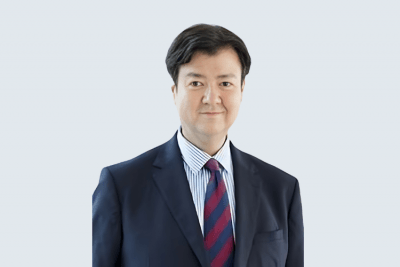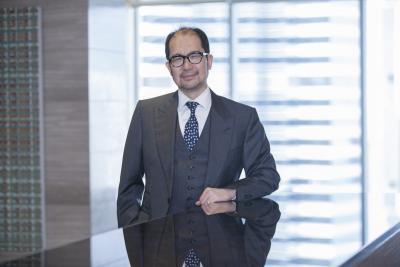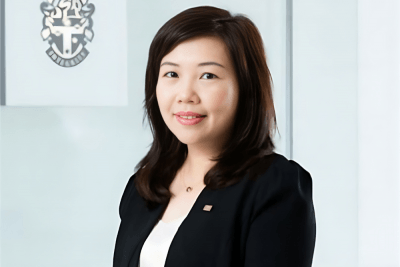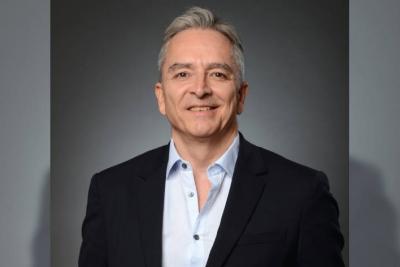Wealth Solutions & Wealth Planning
Trident Trust Singapore: Expanding its Three Core Businesses Across Asia
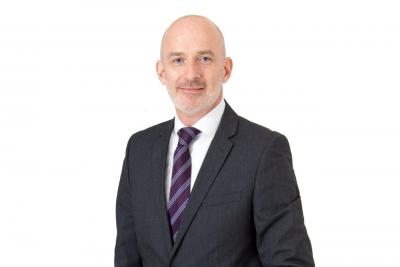
Sean Coughlan of Trident Trust
Dec 3, 2019
Sean Coughlan, the Jersey-born Managing Director of the Singapore office of global fiduciary and fund services firm Trident Trust, reports that the three core pillars of the Trident global business model are all expanding in Asia. The Singapore operation he runs has been especially successful in bringing North Asian clients to Singapore, attracted as they are by the tax incentives on funds and family offices. And the traditional trust business is also on the rise as increasing numbers of clients seek onshore solutions. Meanwhile, Trident is also aiming to boost its corporate services activities and is working with a number of global partners who are looking to benefit from Singapore’s business friendly environment.
Established in 1978 and present in Asia for more than 25 years, the Trident Trust Group is a global provider of corporate, fiduciary and fund administration services, employing over 900 staff worldwide. Privately owned and independent, the Group provides its services to financial institutions, professional advisors, asset managers, family offices and international businesses. Both of the Group’s offices in Asia, in Singapore and Hong Kong, provide all of its three core services.
Trident’s Three Pillars
The trust operation involves solutions and services for wealthy Asian families looking for the benefits a trust can deliver, typically asset protection, estate planning, inheritance deferment for their children, including the protection of family assets from the mistakes of the younger generations, or protecting the inheritance of the younger generations from the mistakes of the older generations!
Trident’s fund administration business provides the infrastructure, administration and accounting for third-party asset managers, whether hedge funds, private equity, debt, or real estate funds. This area is enjoying especially rapid growth, driven by accommodative legislation from Singapore in recent years to attract Asia’s super-wealthy families to use the island republic as their asset management hub.
Trident also provides corporate services in a very wide range of jurisdictions, covering both offshore and onshore. Those services range from incorporation and registered office, to secretarial services and management representation, if required.
Singapore – building from its core
Coughlan reports that Singapore has made major strides forward in recent years to make itself attractive for Asia’s wealthy families in terms of enhancing its reputation and its practicalities for residence, fund management, structuring and family offices.
“There is no avoiding the reality that tax neutrality for private client structures related to investment services is a major bonus here,” Coughlan comments. “But other attractions include geographic position and the range of languages spoken here, in particular Mandarin. Many of our North Asian clients speak little or no English and prefer to deal with staff who are Mandarin speakers. So, you have the entire ecosystem of Singapore supporting this expansion.”
Welcoming the super-rich
“Asian clients,” he adds, “feel comfortable in Singapore, as it is welcoming to a wide variety of cultures, given the broadly mixed culture of Chinese, Indian and Malay, as well as close political and economic ties to Europe and the US. It is very easy for them to come in and out of Singapore; the government makes them feel very welcome.”
Trident has 50 staff in Singapore today. “We have been growing at a good pace in recent years across all three pillars of our business,” he reports. “Fund administration has grown very quickly, and we have invested in new staff, systems and office space. This investment is a joint initiative with our Hong Kong office, which has a dedicated marketing team focused on fund administration services. The administration is, however, provided out of the Singapore office. Unlike many other providers in Asia, we don’t outsource any of the administration, it is all performed from Singapore. ”
Focusing specifically on private client trust services, Coughlan remarks that the objective of tax optimisation, which used to be paramount in the 1990s, is lower down the order of priority for Asian families today, as they focus mostly on planning for the children and later generations.
A question of substance
Coughlan explains that a major concern for many clients at the moment is the developing issue of economic substance. “There is a lot of effort being made to explain the rules and ramifications of all this,” he reports. “The BVI is still a global centre for corporations, particularly for the wealthy Chinese, who are probably still the biggest users of BVI companies. So, there is a lot of energy being spent educating the market, both the advisors and the end clients, on the implications of these far-reaching regulations.”
“There are many clients who have these BVIs and who still want to keep them,” Coughlan explained, “so Trident Trust is offering them a range of services to help them comply in various ways.”
13 is the magic number
And on the fund administration side, Coughlan also reports that there is growing awareness and interest in Singapore’s suite of tax incentives to encourage funds to set up there.
These tax incentives are designed for fund management companies that are registered with the Monetary Authority of Singapore (MAS) either as a Registered Fund Management Company (RFMC) or a Capital Market Services License (CMSL). Single Family Offices which qualify for the licensing exemption may also benefit from the tax incentives.
Once approved, specified income derived from what are known as ‘designated investments’ within these funds is then exempt from tax. A wide range of investments fall within the definition of designated investment, including stocks, bonds, securities, derivatives and several other types of investments. Immovable property is not included if it is located in Singapore.
The tax incentives are outlined in section 13CA, 13R and 13X under the Singapore Income Tax Act. 13CA covers Offshore Fund Tax Exemption Scheme, 13R covers the Onshore (Singapore Resident Company) Fund Tax Exemption Scheme, while 13X relates to the Enhanced Tier Fund Tax Exemption Scheme, under which the rising tide of single-family offices operate.
Trident’s expansion in this fund administration arena has been buoyed by the remarkably attractive and forward-thinking regulatory environment Singapore has been creating.
To capitalise on the growth, Trident has hired a number of key business development professionals. “Their marketing initiatives for Trident are then supported by our growing in-house operational team and our new technology system. We have also invested in additional office space to accommodate the growth,” Coughlan reports.
“We are getting really good traction,” he adds, “especially with hedge fund managers in North Asia, who demand a different level of service and speed to typical private clients, hence our investments in this area.”
Trident – true to its roots
Trident remains privately-owned, while many of its peers and competitors have been bought up by private equity firms.
As for Trident’s individual profile in what is a highly competitive and price-sensitive marketplace today, Coughlan believes the firm has achieved the right balance of growth and stability.
“The key difference today,” Coughlan comments, “is really how we take our business forward in terms of our pricing model and the type of business that we're willing to take on. We have very strict criteria in terms of managing our own risk profile, making us less adventurous in relation to what could be considered high-risk clients, or overly complicated structures. Our Group is looking to achieve long-term sustainable growth and prefers to adopt a conservative approach.”
And he explains that Trident’s pricing model is therefore somewhat different from the street. “I set the budget every year, and our global management are happy to leave the targets to local and regional management, as they are closer to market. They do not push for unrealistic rates of growth, which would be tough to achieve without taking on higher risk clients or projects. I have previously worked for other trust companies where growth targets are set centrally and do not always reflect the reality of what is happening in the industry .”
Coughlan’s final comment is to convey his optimism about the future and Trident’s position in the market. “Trident is all about balanced growth,” he says, “which is precisely what we have been achieving out here, supported by the remarkable growth of private wealth in Asia and the increasing professionalism and institutionalisation of approach in managing and preserving the assets of the region’s very wealthy families.”
Coughlan’s Three Priorities for Trident
The biggest priority every trust company faces in Singapore and indeed globally, Coughlan believes, is managing effectively to achieve the optimal balance of resources and service.
“We are careful to avoid the potentially slippery slope of not having enough staff to manage our existing clients as we build more business on top,” he explains. “We have done well in retaining our team and building appropriately to achieve stability and growth at the same time. For example, our trust business development team has been winning clients across the region, but they are solidly backed up by a really good trust administration team on the ground.”
The second priority is the fund administration side, where Trident has been rapidly boosting its presence in North Asia. “We have made such good progress in North Asia we now need to get our Southeast Asian and South Asian marketing right as well ,” he reports. “We want to build a specialist business development team targeting the fund administration space in the rest of Asia.”
The third priority is to build the relatively modest corporate services team and move up several levels vis-à-vis competitors. “We want to grow that organically and through building relationships with global strategic partners,” he reports.
Getting Personal with Sean Coughlan
Coughlan’s history in trust management dates back to his birthplace in the offshore financial centre of Jersey, which to this day is his true home base. “We still have our house there and our four children, aged between 15 and 22, are backwards and forwards to Jersey when they are not at university or in school, and my wife tends to spend the summers there. Jersey is still home for us.”
Coughlan describes himself as one of the elders of the Singapore trust industry, having been in Singapore for nearly a decade and having spent the first 20 years of his career based in Jersey. He began with Ernst & Young back in 1990, well before their trust business was bought over by Royal Bank of Canada.
“I learned my craft in the trust business with them,” he recalls, “they had a very big operation with more than 250 people at the time, and then I began coming to Asia in the mid-1990s when I was Head of the Private Trust Operations for Royal Bank of Scotland International in Jersey. They had a Hong Kong office, and I began working with them to help their clients, coming out to Asia a few times a year.”
The family moved to Singapore in 2010 when Coughlan was appointed MD of another privately owned trust company. “The business was growing fast and they wanted someone with more experience of running a tightly regulated trust business” he recalls, “and they reached out to me in Jersey.”
Spare time for Coughlan and his wife, who are often home alone while the children are overseas at school or university, is spent enjoying sports and what he describes as an eclectic range of music.
“I am a consistent social runner and up to a few years ago I did participate in a number of organised events each year. Singapore has some sort of 5K, 10K, half marathon or marathon almost every weekend, often for charitable causes. These days though I am far less motivated to get up at 5am to race!”
“On the music front, Singapore has quite a lot of choice, from rock to classical and opera,” he explains, “and while my wife is not so passionate about music, she does keep me company to enjoy the wide variety of live music available. Sadly, I do not play any musical instruments myself, which is a regret, and I now no longer have the time or the patience to learn.”

Managing Director, Singapore at Trident Trust

More from Sean Coughlan, Trident Trust
Latest Articles



